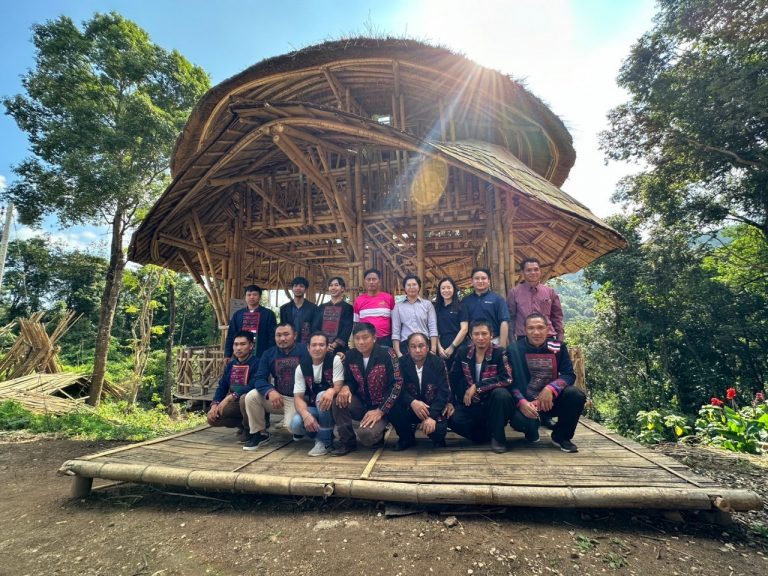From Bamboo Project to Community’s Sustainable Change
“The true intention wasn’t about the bamboos, but the people. It is to build their capacities.”
Supachai Bumrung (Ting), a Teach For Thailand (TFT) cohort 7th spoke about ‘Yummacha,’ a bamboo-processing project in the Sang Na Goen Forest community, Chiang-Rai, founded by him and his colleagues.
“It all began during my first year when the Mae Fah Luang Foundation tasked local teachers with developing a Problem-based Learning curriculum, incorporating 21st Century Skills and a student-centric learning style. Additionally, it had to revolve around agriculture.”

“I asked my students, ‘What should we do?’ They suggested using bamboo to generate income. The community around there is called ‘Sang Bamboo Forest,’ and there is plenty of bamboo. So, I let my students come up with a project while I supervised.”
In further studies on bamboo, Ting found that bamboo are very strong material and can counter beetles. They can also help maintain the environment and are very effective at carbon absorption. Shortly after initiating the project, Ting received a request from TFT to come up with a community impact project.
“I started by contacting other TFT Fellows who were also looking to do community projects, such as Kru Team from Lopburi. Then, I built a close relationship with community members to put their needs at the center of this project and bamboo designs. We provided knowledge and training on preserving bamboo and later found out that it helps cut costs for the community, as the transportation of modern equipment costs 50% more than usual. Using bamboo alleviates these expenses.”
Ting and his team then began fundraising and gathering valuable insights. They sought consultation from ‘Bamboosaurus,’ a group of new-gen designers whose expertise and designs revolve around bamboo, to learn how to preserve and design with the wood. The team also organized workshops on design so that both parents and students could take part in the creation of the Bamboo Learning Center.
Despite the challenges, both in terms of budget and resources, the Bamboo Learning Center prototype was built.
“Yummacha” originates from “Yummasa,” meaning bamboo house,” Ting clarifies. “This project allowed us to see how sustainability is tightly connected to community involvement. This Learning Center will stay with them, helping to reduce parents’ expenses and improve their living quality. Consequently, students will benefit from this as they can now come to school and focus more on studying.”
Jiratchaya Phala, principal of Ban Pasang Nagoen School, told us about this project.
“Students get to learn knowledge and skills outside of textbooks, and the community feels they can rely more on school personnel. It became a collective effort.”
“We have been pushing for our students, from 1st to 15th grades, to have learning and information-gathering capabilities, which are skills about PBL,”
Wirayut Loekchoedchu, President of the School Board of Directors, at Ban Pasang Nagoen School, shared his thoughts.
“We had utilized bamboo in the past, but they never lasted this long. I have heard from community members that more people are taking interest in this project; they gain more income from selling preserved bamboo, and that money comes back to support them.”
In the future, Yummacha is heading towards becoming a community enterprise, leveraging towards a tourist spot in two years, and becoming a “bamboo college,” a community learning hub where interested individuals learn about bamboo.
“Not only have we improved parents’ lives, but this has been a collective learning and development experience for the students, who gain a deeper understanding of their school and community – and this knowledge will stay with them after graduation.”
“This is the first time the community and school have worked together so closely, with parents themselves acting as experts and teachers. Community members also see the possibility and incentive of empowering the younger generations, so they can support the community in the long run. Parents are now very supportive of sending their kids to school,” Ting concluded

